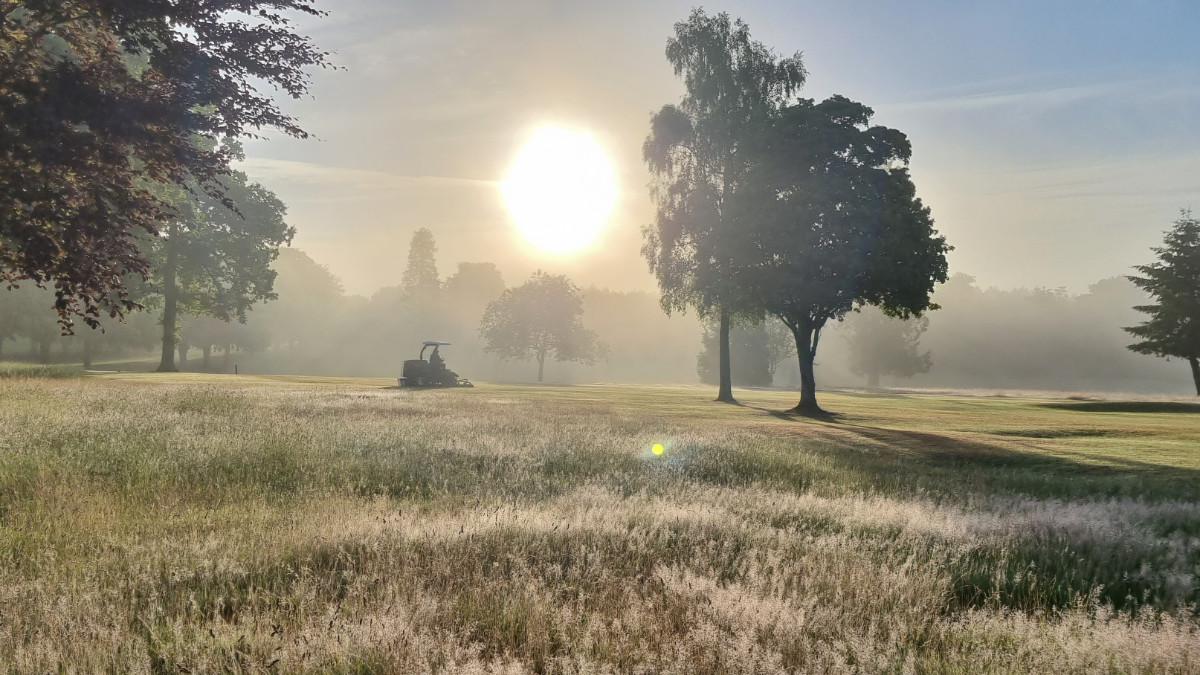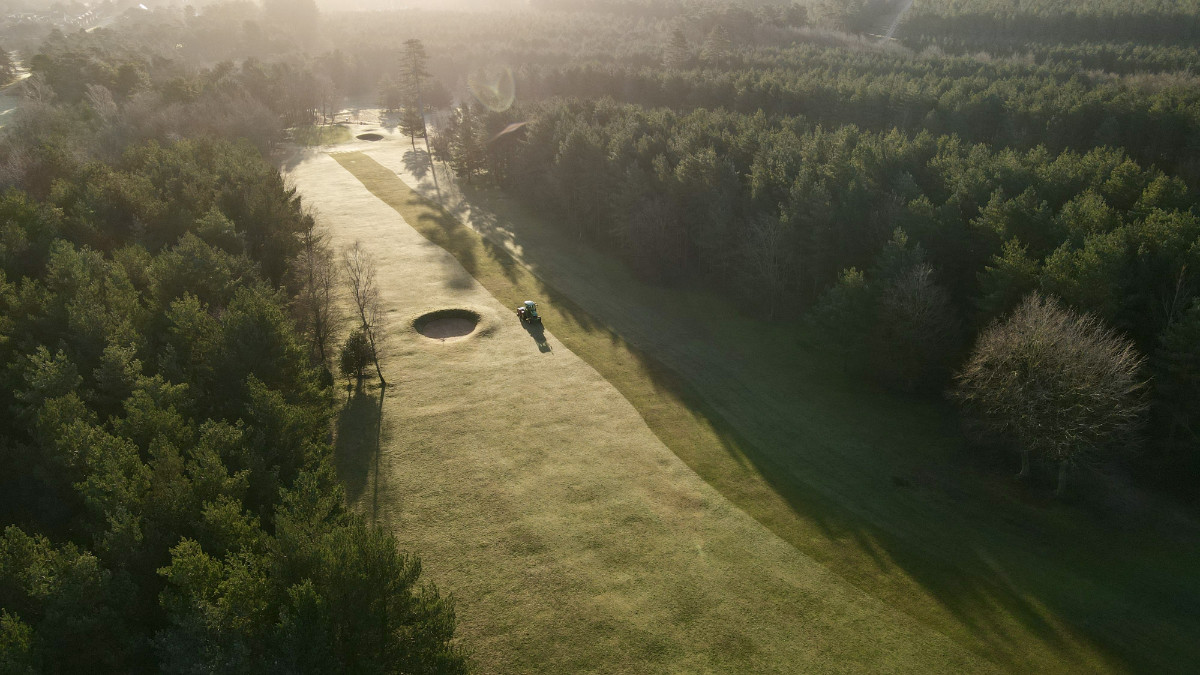- Homepage
- News and Features
- BIGGA in 2023: Our New Year's resolutions and how we are building a better future
BIGGA in 2023: Our New Year's resolutions and how we are building a better future
In November, BIGGA's chief executive, Jim Croxton, and chief operating officer, Sami Strutt, delivered presentations at the BIGGA Conferences held around the country. Speaking to more than 500 BIGGA members across the five events, they discussed the current challenges in the industry and the Association's role in meeting them.

Background - The story so far
BIGGA was set up in 1987 with the intention of supporting and representing greenkeepers. Over time the strategy has evolved and can now be encapsulated thus:
- Serve the needs of our members
- Support the health and growth of the game and the industry of golf
- Provide leadership and direction in greenkeeping to the golf industry
In simple terms, BIGGA exists to make the world a better place for greenkeepers and we believe that those three strategic aims will make this happen.
BIGGA has always been a greenkeepers’ association rather than a greenkeeping association. But increasingly a role has developed for an organisation to take the lead on matters pertaining to greenkeeping and the industry now looks to BIGGA to show leadership on how the various challenges the profession faces should be navigated.
The 2022 BIGGA workforce survey provided a detailed snapshot of our industry with responses from over 500 UK golf clubs on a wide range of topics including recruitment, facilities, training and job satisfaction. The results were announced during The 150th Open at St Andrews and became a major topic of conversation.
There has never been an authority on greenkeeping, but the industry now looks to us to show leadership in how the industry navigates the various challenges we face
The survey uncovered several positives:
- The average greenkeeping team had grown by 1.4 people since 2018 as the postâÂÂpandemic golf boom increased demand on golf courses.
- Salary increases have outpaced inflation, although there is still much to be done.
- More clubs take note of the Committee for Golf Club Salaries (CGCS) guidance and recognise that valuing staff leads to better retention.
- More emphasis has been placed on education and personal development, with better access to attend educational events.
However, the negatives cannot be ignored:
- One in three greenkeepers are looking for work outside of the industry
- Only half claim to be happy in their role.
- Over half of clubs have vacancies in the greenkeeping team.
- Over 80% of clubs find it difficult to recruit.
- Less than one in four clubs have undertaken any outreach locally to raise awareness of careers within the facility.
What is driving these challenges?

Issues - What we need to address
We believe there are five key issues that the industry must address to improve matters: salaries; welfare; governance; recognition; and awareness.
Salaries
Entry level salaries are generally not much above minimum wage, if at all.
While salaries for course managers/head greenkeepers can be competitive, there is often very little salary progression in the ranks of greenkeeping teams until senior positions are reached. Meanwhile, we read of alternative professions offering significantly higher remuneration.
Additionally, the Government’s National Careers Service website has no reference to greenkeeping as a profession, while the only vague reference is ‘golf’ being included in the description of a groundsperson, stating a maximum salary of £30,500. This is not an attractive outlook.
Welfare
Greenkeepers’ working conditions are a definite problem. Our research showed some startling information: kitchen facilities, office areas or drying rooms were each only available in 70% of clubs, while only 60% provided a washroom for their greenkeepers.
Only one in five clubs has changing facilities and toilets for women within maintenance facilities. As we seek to encourage women into the industry, this does not present an equal, diverse, or inclusive environment.
For newcomers to the industry, working conditions are a key element. Particularly for youngsters whose parents may well accompany them on inspection visits.
Governance
The management of golf clubs can cause challenges for staff. Aspects such as timeliness and consistency of decision-making, clarity of line management and lack of long-term strategy all have an impact.
Many clubs lack an effective HR function and greenkeepers and other golf club staff are very exposed to criticism from golfers.
Recognition
Historically greenkeeping (specifically) and sports turf management (in general) have not been recognised as a profession. While many formal qualifications exist, it has not been viewed as favourably as it should.
The National Careers Service website has no reference to greenkeeping.
Awareness
The lack of recognition leads to a similar lack of awareness of the important role greenkeepers play. Greenkeepers are often only mentioned when there is a problem, like referees in football. When things go well, greenkeepers are invisible. This is an issue for the profession as we seek to attract new people, retain those we have and improve matters in general.
What can we do about all of this?

Solutions - Immediate BIGGA activity
What is BIGGA doing to support greenkeepers, alongside other leading bodies in golf?
Mental Health
Mental health has become a priority within our industry and we have embarked on a campaign to provide Mental Health First Aid (MHFA) training within our membership, initially for 100 BIGGA members to complete a two-day workshop. The workshop provides awareness, knowledge and some skills to help others through some of the challenges they may be facing and to direct others towards services that may help them. It also reinforces the importance of looking after yourself – the reality is you are more important than grass.
If you’re interested in signing up for the MHFA training email: [email protected].
Mental health has become a priority within our industry and we have embarked on a campaign to provide Mental Health First Aid training
Recruitment
We have embarked on a workforce project that is focussing on a multi-strand strategy to raise awareness of the greenkeeping profession, including engagement with schools, graduates and careers providers as well as developing relationships with the military and public services sector to promote second career opportunities.
The First Green initiative, created by the GCSAA, is being developed by BIGGA for the UK market and will provide a toolkit to turn the golf course into a classroom, putting greenkeepers and golf at the heart of STEM education.
We are recruiting a workforce project manager to coordinate communications with the military and public sector to promote jobs in greenkeeping as a second career. This person will also develop our Careers in Greenkeeping resource centre.
Welfare and governance
BIGGA is engaging with the sport’s governing bodies on the issues of welfare and governance. We believe it is time for golf to adopt a code of conduct for the way staff are treated. SafeGolf is a compulsory code of conduct for clubs in GB&I that ensures clubs have procedures in place so children and vulnerable adults are safe within the golfing environment. We would like the next step to be ensuring staff are treated fairly and appropriately.
BIGGA was at the centre of that work, ensuring the golf industry could respond and thrive when it most needed to
Salaries
BIGGA is influential within the Committee for Golf Club Salaries (CGCS) and pushes for appropriate salaries and the promotion of the recommendations to the broader industry.
Recognition
Greenkeeping qualifications are developed, maintained and reviewed through the Greenkeepers Training Committee. The GTC works with employee bodies, training providers and government to ensure the qualifications meet the demands of the industry. Regular reviews keep them up to date to embrace changes in technology and working practices.
A major project is underway to develop an internationally recognised certification scheme for greenkeepers. The aim is to provide an achievable yet aspirational career path and for golf clubs to be recruiting for certified greenkeepers. This will help greenkeeping be recognised as a formal profession.
Awareness
At the 2022 US Open the superintendent, Dave Johnson, was presented with a trophy recognising the work that had taken place to prepare the golf course to host the event. This was a huge statement for the profession and with our influence we hope to see this replicated at major UK golfing events.
We engage directly with the golf media to promote greenkeeping matters and this output improves year on year. The break in play enforced by the pandemic threw a spotlight on greenkeeping and we have been able to cultivate those relationships substantially since.
Your Course magazine will be reintroduced after a COVID-enforced break, both in print and digital formats. It will continue to provide information to golfers about the work that greenkeepers do to provide playing surfaces for their enjoyment. It also provides a platform for the industry to highlight the issues that you face due to climate change, pesticide restrictions and recruitment, to name a few.
Advocacy
There is a huge amount of work that goes on behind the scenes to ensure the » industry continues to thrive and that greenkeepers can carry out their job to the best of their ability.
The R&A’s Golf Course 2030 is a crucial project, putting the greenkeeping side of the industry front and centre. The outcomes of this project are going to be high profile, with greenkeeping being referenced at every level of the sport. When launched, Golf Course 2030 had three key priorities: climate change, pesticide regulations and resource scarcity. Alongside these, ‘people’ has become a further priority.
The All-Party Parliamentary Group for Golf (APPGG) provides a platform for golf to come together like no other sport. This was evident when the essential maintenance guidelines were published during the pandemic. It was this work that made it possible for golf to be the first sport to reopen and participation levels to rise. BIGGA was at the centre of that work, ensuring the golf industry could respond and thrive when it most needed to. Another benefit of our involvement in the APPGG was the exemption for using red diesel. Golf was initially excluded from the exemptions but we were able to demonstrate via the APPGG the additional annual cost (around £7-10,000 per club) that would impact on customers and staff and the exemption was granted. This isn’t the case in other sports, who now must use white diesel at considerable additional cost.
Golf Forum meetings include all the key organisations in golf and it has been heartening to see the focus of these meetings shift to include workforce issues.
BIGGA plays a key role in initiatives like the Amenity Forum, ensuring the voice of greenkeeping is heard.
Alongside all this work, BIGGA continues to provide a vast array of benefits and opportunities to members, not least the industry’s flagship events BTME and Continue to Learn. Check out the BIGGA website, call the office or speak to your local Membership Services Manager to refresh your memory of all the benefits, initiatives and opportunities available to you.
Continue the conversation: Jim and Sami are both on Twitter.
Author


